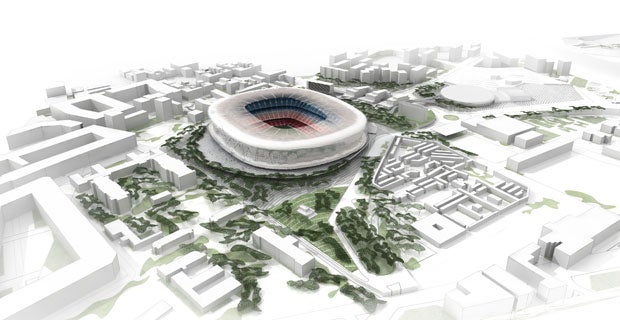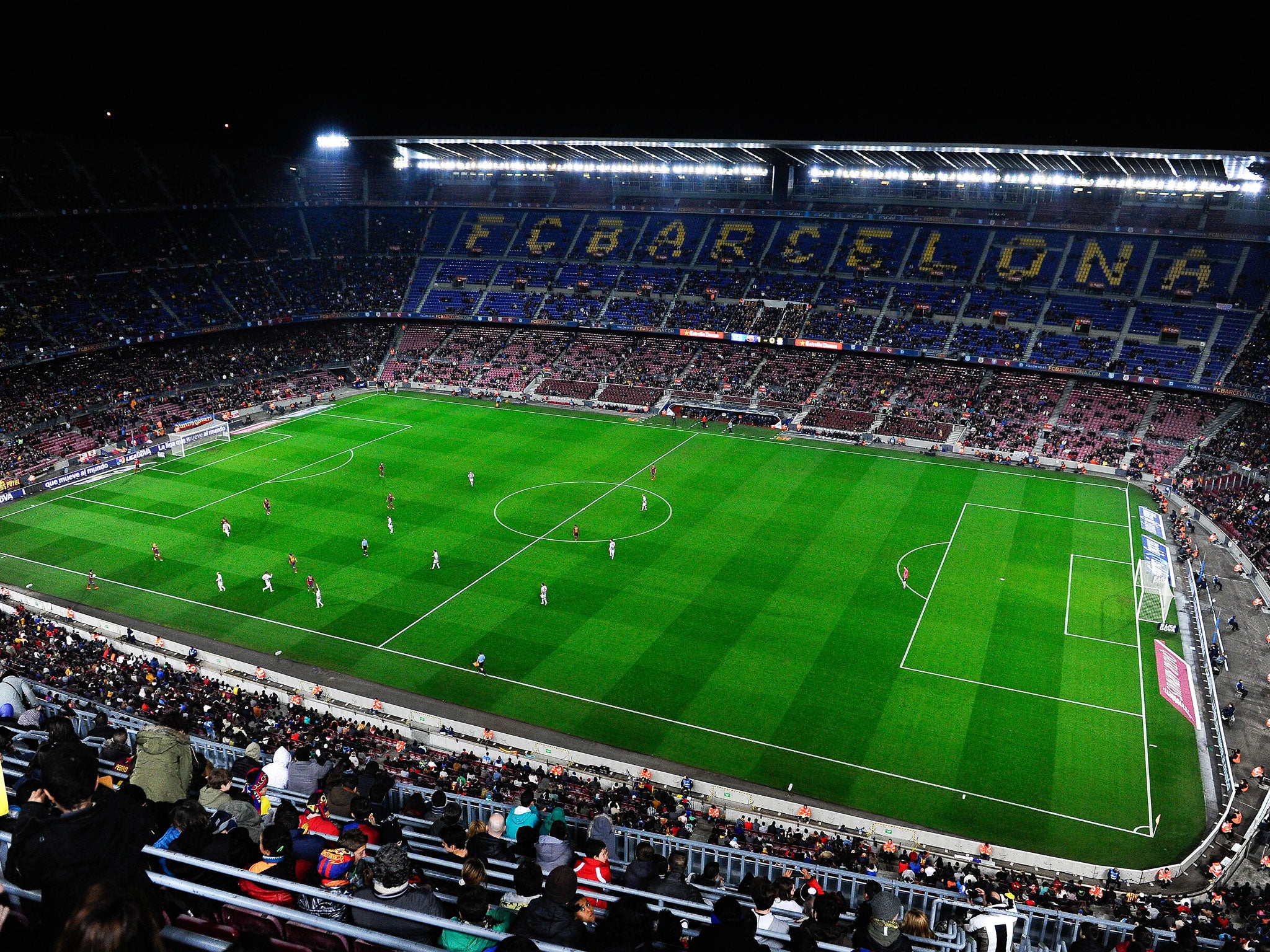Barcelona set to redevelop Nou Camp to increase capacity to a staggering 105,000 - 15,000 more than its closest rival Wembley
Club president Sandro Rosell has confirmed that a vote will take place in April over whether to approve the build after plans for a new stadium were scrapped
Your support helps us to tell the story
From reproductive rights to climate change to Big Tech, The Independent is on the ground when the story is developing. Whether it's investigating the financials of Elon Musk's pro-Trump PAC or producing our latest documentary, 'The A Word', which shines a light on the American women fighting for reproductive rights, we know how important it is to parse out the facts from the messaging.
At such a critical moment in US history, we need reporters on the ground. Your donation allows us to keep sending journalists to speak to both sides of the story.
The Independent is trusted by Americans across the entire political spectrum. And unlike many other quality news outlets, we choose not to lock Americans out of our reporting and analysis with paywalls. We believe quality journalism should be available to everyone, paid for by those who can afford it.
Your support makes all the difference.Barcelona have rejected the option of leaving the Nou Camp in order to build a new stadium, with the board of directors instead choosing to press on with plans to redevelop the current ground to increase the capacity as well as the surrounding area.
The board, made up of members who collectively own the club, will have the chance to vote on a proposal which would see the Catalan stadium increased from its current 98,000 capacity to 105,000 in an effort to boost their matchday income.
The Nou Camp already boasts the largest capacity stadium in Europe, with Wembley’s 90,001 coming a distant second, but the planned increase looks set to take it even further out of the reach of its nearest competitors.
The full development, which includes a brand new indoor basketball arena among many other facilities, would cost an estimated €600m (£495m) and would not be completed until early 2021 should work begin by the planned year of 2017.
The historic stadium would also have a new roof added, with all the work taking place while the team continue to play their home matches at the Nou Camp, although we don’t anticipate Lionel Messi dribbling around a construction yard any time soon.

Club president Sandro Rosell admitted that the decision wasn’t an easy one to make, but was eventually decided due to the stadiums reputation as an icon of the city as well as the gigantic costs a new build would generate.
“It was a difficult decision,' said Rosell. “The two projects were very attractive but we were committed to put to a referendum a project that was viable from a technical, urban-planning and economic perspective.
“The Nou Camp is part of our collective memory, the biggest stadium in Europe and an icon of the city of Barcelona.
“The option of building a new stadium on a new site has been rejected as the final cost could have saddled the club and its members with debt and tied the hands of future boards of directors.”

Plans for the rebuild include making the lower tier steeper to improve visibility for fans, and building ‘super-boxes’ for VIP guests along with the new roof.
“To maintain our status as leaders we have to take this historic step which will require effort from everyone involved but which will guarantee the comforts that come with a new installation with the latest technologies at the service of its users and athletes,” Rosell added.
“What's more we will increase the value of our real estate and the capacity to generate additional income without having to sell off assets.”
The new plans will take them to nearly 20,000 more seats that their fierce rivals Real Madrid, whose Santiago Bernabeu currently has a capacity of 85,454.
Join our commenting forum
Join thought-provoking conversations, follow other Independent readers and see their replies
Comments